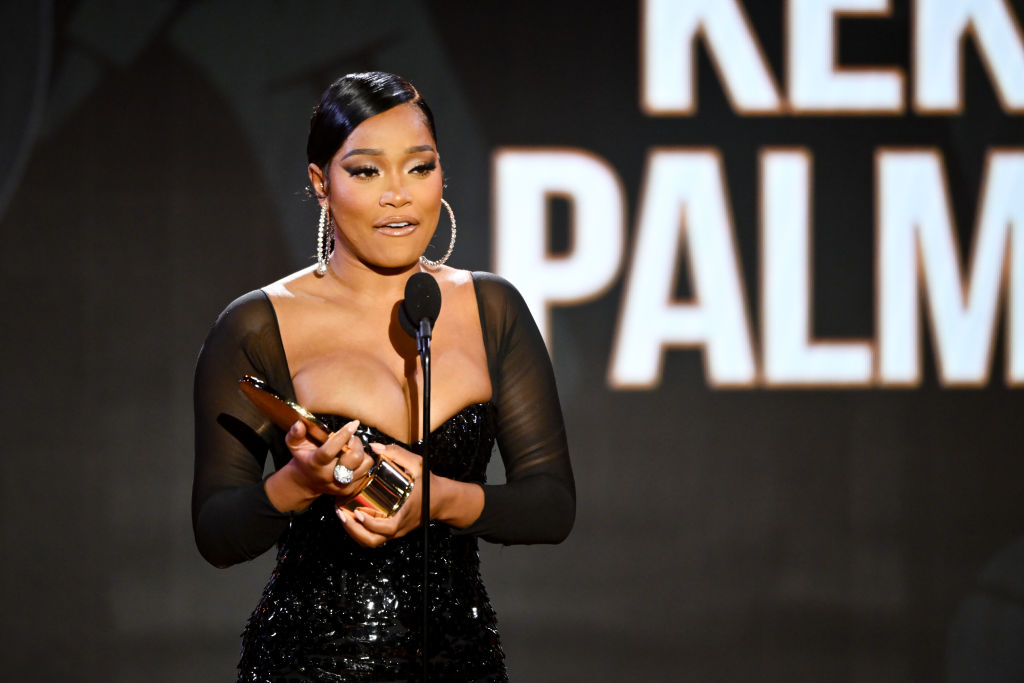Keke Palmer Update: Black Women Face Domestic Violence More
Keke Palmer’s Abuse Allegations Spotlight How Black Women Are Disproportionately Victims Of Domestic Violence

Source: Michael Buckner / Getty
Trigger Warning: This article includes descriptions of domestic violence, physical abuse and threats of suicide.
The blockbuster report that movie star Keke Palmer not only filed a temporary restraining order against her ex-boyfriend but also claimed he physically abused her draws attention to how statistics show that Black women are disproportionately the victims of domestic violence in the U.S.
On Friday, a California judge granted Palmer’s request for a restraining order against Darius Jackson, with whom the actress shares an 8-month-old son named Leodis.
Palmer’s legal protection came hours after Us Weekly reported that it had obtained court documents showing that Palmer accused Jackson of illegally entering her home and assaulting her last weekend. Palmer said that was far from the first time Jackson had assaulted her, alleging “many instances of physical violence” that include “hitting [me] in front of our son” and other “physical and emotional abuse” like threatening to kill himself.
Graphic photos subsequently posted to social media purportedly show Jackson physically attacking Palmer in her home.
Us Weekly reported that Palmer ended her relationship with Jackson last month. Previous reports indicated the couple broke up over the summer following the fallout from the viral incident in which singer Usher seductively serenaded the actress during a concert that prompted Jackson to express his jealousy on social media.
What the research shows
According to data from the Institute for Women’ Policy Research (IWPR), “[m]ore than 4 in 10 Black women experience physical violence from an intimate partner during their lifetimes. White women, Latinas, and Asian/Pacific Islander women report lower rates;” and “Black women also experience significantly higher rates of psychological abuse—including humiliation, insults, name-calling, and coercive control—than do women overall.”
On a more granular level, while IWPR found that about 31% of all women will experience domestic violence in their lives, that rate spikes to more than 40% when the victims are Black women.
IWPR also found that domestic violence as described above can often lead to worse behavior, such as sexual violence and even death, which is likely why the judge also reportedly ordered Jackson to surrender his legally owned gun as part of the restraining order.
According to the National Domestic Violence Hotline website, “[m]ost female victims of intimate partner violence were previously victimized by the same offender at rates of 77% for women ages 18 to 24, 76% for ages 25 to 34, and 81% for ages 35 to 49.”
Palmer is 30 and Jackon is 29.
Survivors of domestic violence also have an increased chance of experiencing post-traumatic stress disorder, depression/a major depressive disorder, harming themselves, experiencing suicidal thoughts and getting diagnosed with an anxiety disorder.
More than half of domestic violence survivors also reported that their professional lives were affected by the abuse.
Anyone who is experiencing or knows someone experiencing domestic violence is encouraged to contact the National Domestic Violence Hotline by calling 1.800.799.SAFE (7233).
SEE ALSO:
New Mom Keke Palmer Says Motherhood Is Her ‘Greatest Gig Of All’

















